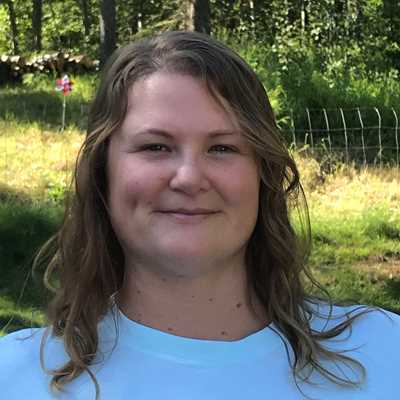From the time he first witnessed the massive irrigation infrastructure growing up in Indus River Basin in Pakistan, Ali Ajaz, Ph.D., program specialist with Texas Water Resource Institute (TWRI), has dedicated his studies and professional activities to irrigation engineering.
“I come from a region which has a lot of irrigation canals. So, I used to go out fishing in those canals with my dad when I was little, and I used to see those water conveyance structures, and I always wondered how those huge irrigation projects were built to feed river water to millions of irrigated acres. And this certainly helped me with choosing a career focused on water and agriculture,” Ajaz said.
Education and early work experiences
Ajaz’s dedication to irrigation engineering never waned. After high school, Ajaz attended Bahauddin Zakariya University in Pakistan and earned a Bachelor of Science degree in agricultural engineering with a focus in water conservation and irrigation engineering. After graduating, he worked for a while as a contractor for pressurized irrigation systems, and then as a World Bank consultant for high-efficiency irrigation systems.
Next, he went on to earn a master’s degree in water science and engineering from the IHE Delft Institute for Water Education in the Netherlands, followed by a doctorate in biosystems and agricultural engineering from Oklahoma State University.
The two things from his career so far that Ajaz is most proud of are developing a new drought monitoring index in his doctoral research and working on a large-scale irrigated area data uncertainty project with International Water Management Institute in South Africa during his master’s program.
“I worked on developing a new drought index in doctoral research,” he said, “And I was able to push that idea forward by integrating the new index in a mobile app with the help of OSU App Center. And that’s something I’m really proud of.”
“Publishing my masters research was quite challenging as my work highlighted serious issues in the irrigated area reporting mechanisms of multiple countries. But it is also important that we report exactly what we find in the research so that systems can be improved”
Agricultural water management and crop modeling
Ajaz currently works for TWRI as a program specialist focusing on agricultural water management and crop modeling. He works with growers to use tools such as sensors to collect data that can improve irrigation scheduling. He also works with irrigation districts to develop drought contingency plans and education programs to educate growers on water conservation through his work with crop growth modeling.
“Another domain where I am working is covering crop growth simulation modeling. I use various crop models and try to assess the overall impact of climate, soil types and management practices on yields of major crops in Texas. And for that purpose I am also using gridded datasets. That is a relatively new area of research and can definitely help to make some useful extension-focused tools for growers,” Ajaz explained.
The thing he enjoys most about his job is interacting with growers and other stakeholders.
“Being an engineer, I try to translate science for the farmers. We go out in the field and talk to the producers to help them better understand the problems, discuss solutions and see whether they work for them or not. Most of the time we are able to help them but sometimes we definitely see a need of more advanced research to answer all the questions for improvement,” he said. “I really love to interact with growers’ community and value their contribution to bring improvement in our work.”
Because Ajaz is not originally from Texas, he shared that building relationships with the grower community was a bit of a challenge. He also began working with TWRI during the COVID-19 pandemic, so meeting and visiting growers face-to-face was not possible. However, Ajaz overcame these challenges by sending a lot of emails, text messages and making introduction calls over the phone.
“Being a good listener plays a key role both in research- and extension-related work. It is important that you fully understand what clients, in our case farmers, really need. This also helps in winning their trust as a specialist,” he explained.
Fishing and the great outdoors
As much as Ajaz enjoys his work, he has other interests during his free time. He enjoys being outdoors and especially enjoys fishing, just as much as he did when he went fishing with his dad when he was a little boy.
“Whenever I get time, I go out and find opportunities and find places to go for fishing,” he said. “I spent my four years of Ph.D. in Oklahoma. And that time allowed me to reconnect myself with fishing again and learn new techniques, learn new ways of using rods and reels, to enjoy the awesome waters in Oklahoma.”
Ajaz is not a catch-and-release angler; he enjoys eating what he catches most of the time.
“Since I am originally from South Asia, over there, people love to eat carp. Even in Europe, carp is a part of traditional cuisine. And when I came to the U.S., it was bit of a surprise for me that people don’t like carp,” he said.
Looking to the future
Ajaz’s love of the outdoors and fishing fits well with his work in water conservation. He has high hopes for his future at TWRI with plans to develop a program in agricultural water management.
“My vision is to expand the program, try to bring more funding in this domain, and maybe build a dedicated team that will focus on educating Texans to use agricultural water more efficiently,” Ajaz said. “Joining forces with existing water experts in the Texas A&M System is another way to add synergy to the ag water management program, and moving forward from there, to implement the innovative interdisciplinary solutions.”


